Lily Islam, a renowned singer from Bangladesh, born and brought up in Kolkata, in a candid online interview with Ruchira. She talks about her days in Kolkata, Shantiniketan, music, Rabindra Sangeet and more. An exclusive for Different Truths.

It was at Tagore’s 150th birth anniversary celebrations, that I espied Lily Islam, the eminent singer from Bangladesh. The venue was the Rabindra Bhawan’s (New Delhi) amphitheater where local Bengalis had mustered strongly. There were visitors from Dhaka too. Quite natural, for how can mere barbed wires separate hearts, minds and souls united in their love of Tagore? The function was impressive, as expected. Lily di presented solos as did her co-patriots. Her voice was melodious like that of a nightingale. She seemed as delicate and as fluid as her music. It was her genial attitude that spontaneously endeared her to the audience. The torrid summer heat (it being early May) could not wither the magic of her voice. During the decade that followed I kept in touch via social media. My joy knew no bounds when a few months ago she eagerly agreed to this interview. The fact that she even called up to explain a slight delay, shows her magnanimity. Nevertheless, finally she painstakingly wrote out the responses over e-mail. Her views and ideas provide interesting reading.
Ruchira: Your early years and family background please.
Lily: I was born and brought up in Kolkata. My father and mother hail from Barisal and Faridpur (both in Bangladesh) respectively. Ours was a huge ‘culturally enriched’ joint family where apart from academics, we participated in extracurricular activities e.g., sports and music. Every evening we sang in chorus, no matter whether harmonious or out of sync. Office-goer uncles, aunts, relatives everybody joined in with great gusto. My father, who was in the judicial services, encouraged me to sing (like my mother did) but he nurtured a secret dream: I must become an advocate. I finished my schooling at the prestigious Brahmo Girls’ High School, Kolkata. My mother, who trained under Ashoktoru Bandopadhyay wasn’t a professional per se but inculcated love for music in me. She was my first guru. Later I joined the prestigious Gitabitan, in Kolkata. I also trained under Ashoktoru Bandopadhyay. Alongside, I pursued dance, dramatics, and fine art. I devoted myself wholeheartedly in whatever I did. Browsing the LP record covers (plentiful in our house) I would fantasise, dream of great things I would do with music. Thereafter, luckily I got admission in Shantiniketan and never looked back.
Ruchira: What inspired you to learn music, and adopt it as a profession?
Lily: I was a music freak since childhood. At school during off periods, my seniors would call me to their rooms where I would sing Hindi songs for them, while thumping on desks for rhythm. I loved it when we visited the homes of relatives and family friends and they asked me to sing. In fact, I avoided visiting homes where they didn’t ask me to showcase my singing prowess. I have always been extremely confident in everything that I undertook. While in junior school, I participated in Tagore’s dance drama Chandalika and did fairly well. There was quite a ruckus at home regarding my decision to study in Shantiniketan. However, my mother stood behind me like a solid rock and helped me to weather the storm.
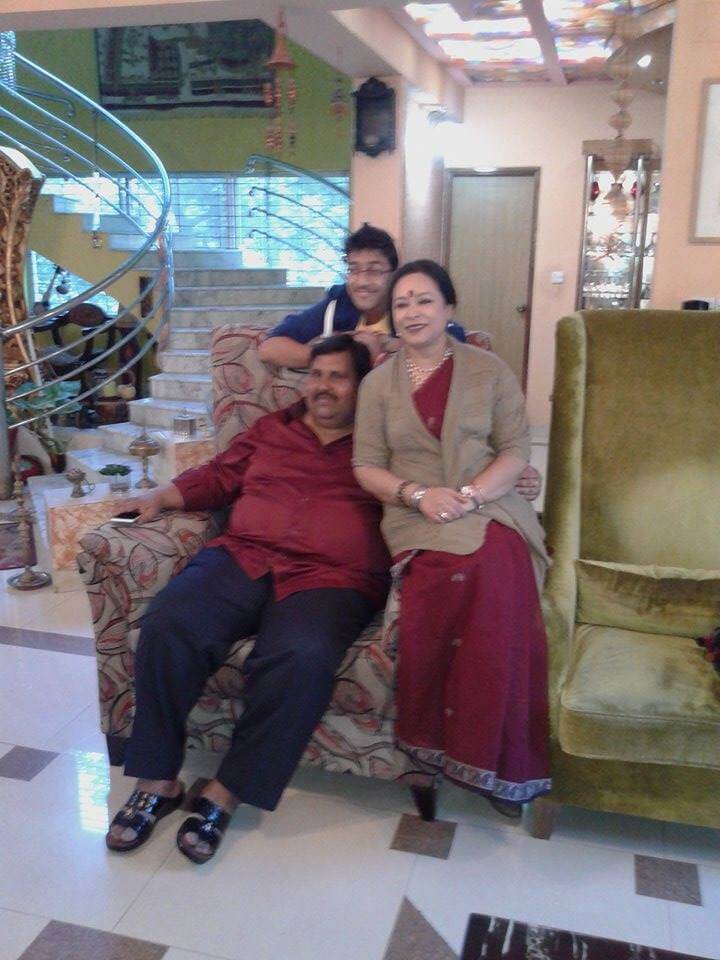
Shantiniketan opened a new vista of life before me. I learnt Rabindra Sangeet from luminaries like Kanika Bandopadhyay, Neelima Sen, Gora Sarbadhikari, Manju Ganguli, Ashok Ganguli, Aloke Chatterji, Ashesh Bandopadhyay, Mohan Singh among many others…I am grateful to my parents for giving me this life. Likewise, I am forever indebted to all my music tutors, who introduced to me to the wonderland of Rabindra Sangeet
Ruchira: Why Rabindra Sangeet in particular?
Lily: I was always into singing. As a kid, I sang all types of songs. Initially, I never thought I would sing x type of songs or y type. But growing up I realised that Tagore’s lyrics moved me in such a way like nothing else ever did. They touched the depths of my soul, evoked myriad emotions, helped me to realise my own inner self, my very being. Then Shantiniketan happened and I got more and more engrossed in Rabindra Sangeet. It pervaded the air and the surroundings. It sort of grew on me. The songs taught me to face life’s stark reality. In pleasure, anguish, in my darkest hour of sorrow, despair and frustration they were my guiding beacon, offering hope and courage to pick up the threads of life and forge ahead.
Ruchira: What is music to you?
Lily: To me music has a vast connotation comprising Sur-taal- lay, instrumentation and so forth. It is the ultimate Truth of life. Without music human life is dull, meaningless, a perpetual emptiness, a void that can’t be filled. To make your life beautiful, worthwhile, complete, and meaningful you must pursue some form of Fine/Performing Art or the other, viz., dance, painting, instrumental music, et. al. When you are ill, listening to music cheers you up, if you are depressed it makes you smile. When in despair it offers hope …
Ruchira: What is Tagore to You?
Lily: Rabindranath assumes a multitude of roles in my psyche as well as in real life. A father figure, constant companion, an eternal lover, occasionally, a little child and so forth. At other times, he is the Messiah, leading me on the path of salvation away from the crass realities of life.
Ruchira: Describe your Shantiniketan days, your music tutors, et. al.
Lily: My 11-year sojourn in Shantiniketan was a life changing experience for me. Though I learnt music under several maestros, yet the most outstanding ones are Kanika Bandopadhyay (Mohor di) and Nilima Sen. Mohor di was the epitome of simplicity. She was modest, low profile. There was an innocent child-like quality in her. I remember how one afternoon she suddenly remarked, “Lily you come to me daily but I know for sure you love Bachchu more than me.” Such honesty and simplicity were touching. Having said that, Mohor di generally appreciated the former’s singing style and other traits. She was great friends with Suchitra Mitra; their love and mutual understanding was exemplary. Yet, if someone happened to remark that Suchitra looked gorgeous while dressed for a recital, Mohor di would sulk like a child and withdraw. Most of the time, she appreciated Suchitra for certain numbers, which the latter excelled in. Even Neelima Sen (Bachchu di) was an interesting personality. I was highly impressed by the way she carried herself, how she drove down to Sangeet Bhawan to conduct classes. I stayed at her home on several occasions. Interestingly, she played a key role in my matrimonial alliance. I have multiple reasons to be grateful to her besides learning music. Music apart, Shantiniketan greatly moulded my outlook on life and things. I learnt to be modest, adapt to all circumstances, love nature, empathise with people, and most importantly be down-to- earth.
Ruchira: Some of your memorable performances?
Lily: I have performed in many places worldwide: The USA, Canada, Australia, the UK, Singapore, Qatar to name a few. I will describe the most memorable incidentof my musical career. The year was 1994. I was studying at Shantiniketan.During Gurudev’s birth anniversary celebrations at Kolkata’s Rabindra Sadan, graced by legends such as Mohor di (Kanika) and Bachhu di (Neelima), I also had the opportunity to sing. A few days later, when Ananadabazaar Patrika carried a review of the event, and splashed snapshots of Mohor di and myself, I was stunned. It was a signal honour for me. Again,during Tagore’s 125th birth anniversary celebrations, Tasher Desh was staged at Shantiniketan after a long hiatus. I essayed the character of Hartani; it was Mohor di, who trained meticulously and orchestrated the entire presentation flawlessly. Another proud moment.
Ruchira: Your awards and accolades.
Lily: While still a student at Shantiniketan, I received the Debabrata Biswas Memorial Award. In addition, I also won the most prestigious City Cell Channel I musical award of Bangladesh. But by far my greatest award or reward (whatever you term it), is the unbounded love, affection and respect received from my students.
Ruchira: What are your other music related activities?
Lily: I am an associate professor, Rabindra Sangeet coordinator, and Director Public Relations at the Shanto Mariam University of Creative Technology, in Dhaka. It is the first institute of its kind in the region. I am the founder director of 11-year-old Uttarayan, a cultural organisation. Soon, we shall establish Uttarayan Gurukul academy to train students. Besides, I have conducted workshops and training sessions on Tagore music, across Bangladesh. I taught at Bangladesh Government Music College for several years. I am part of Bangladesh National University’s Examination Committee. Additionally, I was on the panel of judges for various events (held by TV channels and cultural organisations) in Bangladesh and Kolkata.
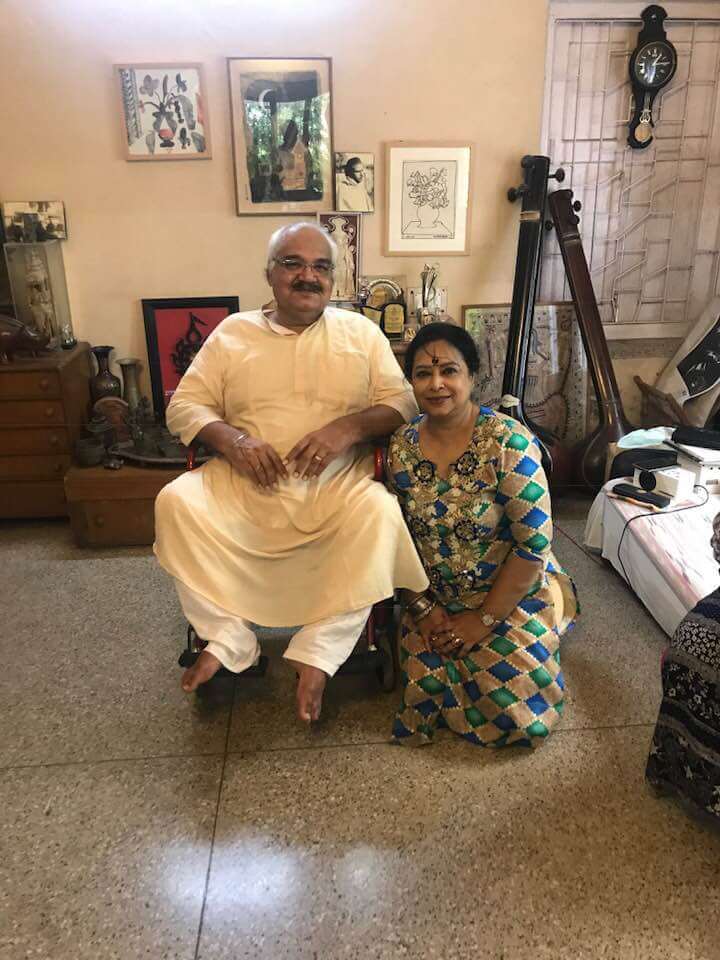
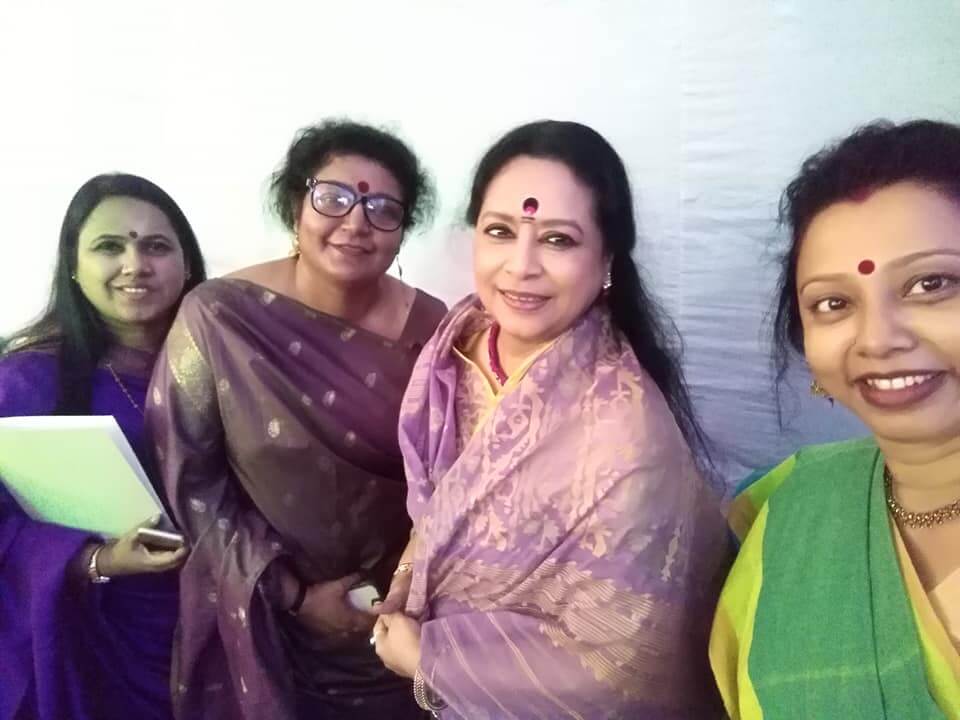
Ruchira: Your favourite singers?
Lily: There are so many of them, including my gurus. Naming them would not be relevant. But yes, I listen to the songs of a vast range of artistes. I try to understand their work, and what appeals to me I try to imbibe within my heart and soul. Summing up, listening to music with rapt attention matters the most.
Ruchira: If not a singer, what would you have been?
Lily: I have my fingers in many pies and I always prefer to keep myself busy. So, I guess I would have been a dancer or even a theatre artist/actor.
Ruchira: Tell us about your present family
Lily: My husband Sh. Chayan Islam is an Awami League politician. A two-time M.P., he is now deeply involved in his business venture and party-related activities. A music graduate from Shantiniketan, he is a music lover and connoisseur. Our son Rishabh is pursuing higher studies in business management at York University Canada. He is an avid footballer and a music freak. I must not forget to mention that my father-in-law, Prof. Mazharul Islam, is an eminent academician and renowned scholar, who is hailed as the father of (modern) Bangladeshi folklore.
Ruchira: Your hobbies and pastimes.
Lily: As an ardent nature lover, I enjoy lounging amidst nature. I am also a huge pet lover. Being a voracious reader, I keep books handy in my car to be able to catch up on reading while commuting from here to there. I enjoy mingling with people from divergent backgrounds, countries, cultures, discovering their lifestyles, customs and practices, food habits, apparels, etc. I love wearing new clothes and designing a few of them. I enjoy Adda sessions with friends and acquaintances. Addas must be meaningful, not mindless gossip so that one spends quality time. I detest parninda parcharcha (bitching). I love my buddies and all my pupils. I love simple, uncomplicated life.
Ruchira: How do you visualise the future of Rabindra Sangeet?
Lily: Rabindra Sangeet is not music; it is a philosophy of life, a table of lofty ideals and values. Its intrinsic worth is so high that it requires no publicity. There is an eternal quality about it which will stand the test of time. It is erroneous to believe that the singers/artists are popularising and propagating Tagore music among the masses. On the contrary, their lives are getting enriched in the process. But yes, currently Rabindra Sangeet is being distorted, misused. But I optimistically believe this is only a temporary phase and Rabindra Sangeet will regain its tarnished gloryand splendour.
Ruchira: Your message to your fans?
Lily: I would tell them to love music. Listen to good music. Like Tagore said, ‘unfasten the doors and windows of the mind, allow everyone, everything to enter.” Our culture is too strong and rich to be eroded by external influences. Ideally, we should adopt their salient features and utilise them to enrich our cultural heritage. Unfortunately, we imbibe minus points of other cultures instead of the good ones. Exposure to high quality music will enable us to differentiate bad from good. Also, I would appeal to all music lovers, parents and guardians: don’t stifle your children’s inborn desires and skills by forcing them to accept careers you want them to e.g., medicine, engineering, management, law, etc. Believe me, music and other Fine/ Performing arts have tremendous potential for lucrative careers, provided we harness them in the right manner. So, discover the talent of youngsters, hone their skills. And help them to blossom.
Photos and music video sourced by the interviewer

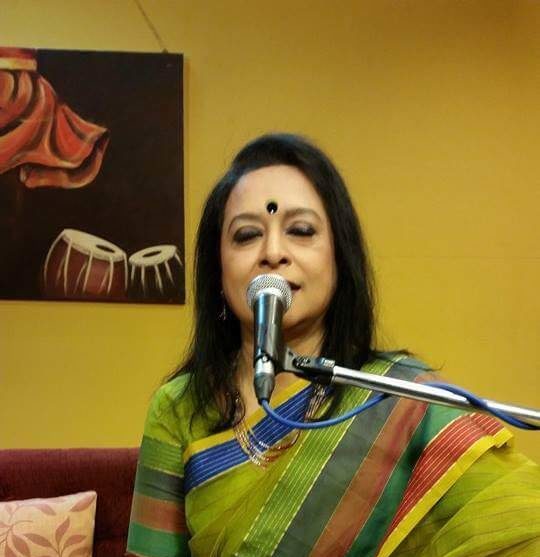



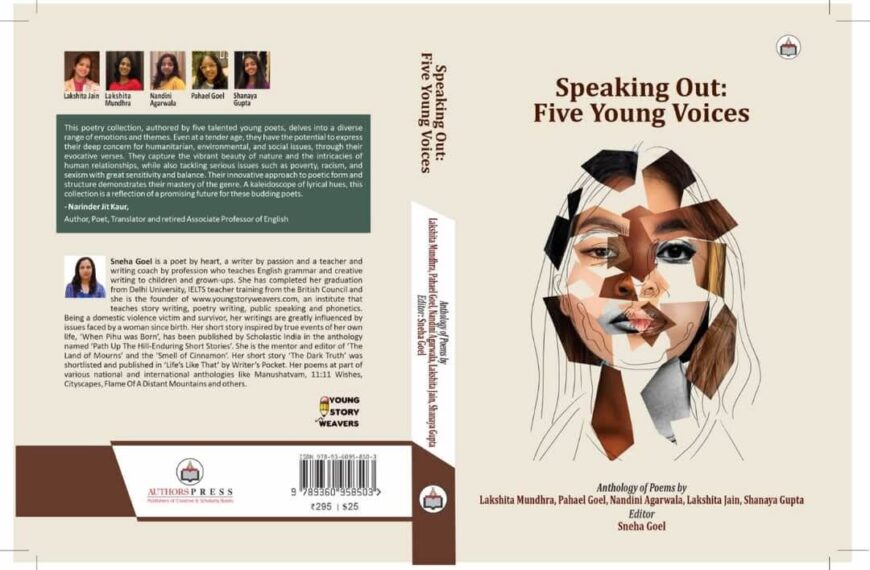
 By
By
 By
By
 By
By